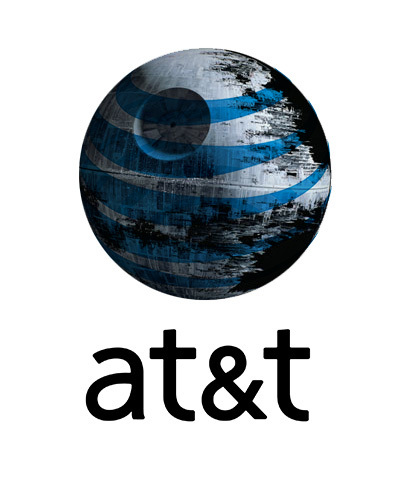Follow Up: AT&T Changes Data Rates
I’ve been up and down on this whole thing. Worse, I’ve even considered my own usage patterns and how I could possibly save money by switching. In the meantime, I’ve been on the prowl to gather opinions on the situation. Professional opinions from prominent tech blogs and podcasts still see this as a massive atrocity, but do normal people care this much?
As far as I could gauge from the pros, there are two sides to how this will affect customers.
Twitter impressions
But first, how are actual people reacting? I started with the pulse of the world by searching Twitter. Using the phrase “AT&T Data” and then the filters that determine if tweets are positive or negative. My findings? No one is happy. Even the “positive” tweets were sarcastic or half hearted, look-on-the-bright-side messages. There were some legitimate “positive tweets” though. It seemed that plenty of tweets were along the lines of “Most people save money, everyone else gets to keep their current plan, why are people complaining?” Several others were sighs of relief that their network would never do this, blaming iPhone users for this in the first place, and finally, very happy Blackberry users. Really though, you can’t really do anything fun on a Blackberry anyway , so this means nothing (kidding!).
Actually the data is still technically unlimited. It’s your fees that are no longer capped. -@Gartenberg
One particularly damning tweet.
The negative tweets were far more vicious. The word “hate” is prolific. A common retweet concerns iPhone multitasking, video chat, and Skype 3G calls with the new caps. Perhaps just as frequent are posts about user’s intentions to switch to a different carrier or not switching to AT&T. It’s clear, people aren’t happy.
(Don’t use Twitter, but want to understand what the heck I was talking about? Lookup some of the buzzwords using the Twittonary)
Pros
As for the pros, they tend to have a slightly less dramatic opinion, but as I said earlier, they are diverging. First, the bad side. This will drive people to be scared to use to use their phones how they want. Should I stream this radio station? Update this app? Load this webpage? Scared customers are not happy customers, which will ultimately cause backlash. They aren’t totally convinced AT&T will be willing to scale the caps to meet customers’ needs should it not be enough, either.
Oh, tons of flack on the outrageous tethering fee. Paying $20 a month to share 2 GB, to simply unlock the feature. It’s maddening. Finally, tons of worry over the expanding mobile market, just as I feel.
The good side is the potential to sell more phones. AT&T insists that the biggest drawback to smartphones is their cost prohibitive data plans. By lowering prices, they can invite tons of new customers to the bandwagon. They’re also very excited about saving money, since many pros can’t even use more than 2 GB of data a month. This excitement also spreads to the 98% of users that will be saving money too, becoming more enthusiastic about AT&T. Ultimately, they couldn’t say if this is going to help or hurt sales, I can’t either. We’ll have to wait and see.
Me
As for me? I’m actually considering it. Believe it. I almost can’t. Here’s my thinking. I never use WiFi, purely for the sake of using 3G (to stick it to AT&T). I do have it at work, home and friends’ houses, which is where I spend the majority of my time. This would easily cover most of my data usage. My brother is on a family plan with me, and he regularly uses less than 200 MB. Right away, I know we can save $15 on our bill. Deep down, I can’t commit knowing that what I have can never come back. I’d be way more willing if rollover data was implemented like I asked previously. Maybe, all of our bickering can get AT&T to change.
As a final note, this probably the worst for new iPad users (which isn’t the focus on this website). In case you missed it, Gizmodo posted an article about how much video you can watch on 2 GB of data. Don’t let me spoil it for you, but, it’s not much at all.

















